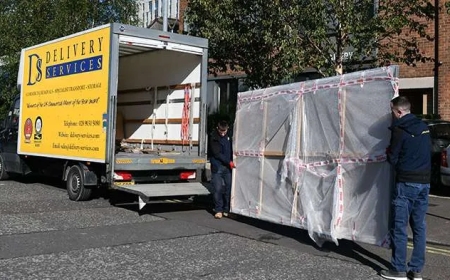Trailer Service and Repair: Ensuring Safety and Longevity on the Road
Trailers are essential for transporting goods, equipment, and recreational vehicles. Whether you're a business owner relying on utility trailers or an outdoor enthusiast with a camper, maintaining your trailer is crucial for safety and performance. This article explores the importance of trailer service and repair, common issues that arise, and best practices for keeping your trailer in top condition.
The Importance of Trailer Service and Repair
1. Safety First
Safety is paramount when operating a trailer. A well-maintained trailer minimizes the risk of accidents caused by mechanical failures. Issues such as faulty brakes, worn tires, or malfunctioning lights can lead to serious accidents on the road. Regular inspections and prompt repairs ensure that your trailer remains safe for use.
2. Preventing Costly Repairs
Routine maintenance can save you significant money in the long run. Identifying and addressing minor issues early prevents them from escalating into more significant problems that require costly repairs. For instance, a small brake issue can lead to complete brake failure if not addressed promptly, resulting in expensive repairs and potential liability.
3. Enhancing Performance
A well-maintained trailer performs better. Regular servicing ensures that all components, such as brakes, tires, and the electrical system, are functioning optimally. Improved performance translates to better fuel efficiency and a smoother towing experience, which is especially important for commercial operations.
4. Extending Lifespan
Trailers are significant investments, and regular maintenance can extend their lifespan. By keeping your trailer in good condition, you can avoid the costs associated with premature replacement. Routine checks and repairs help ensure that your trailer serves you well for years to come.
Common Issues That Require Trailer Service and Repair
Understanding the common problems that can arise with trailers can help you recognize when service is needed. Here are some typical issues:
1. Brake Problems
Brakes are one of the most critical components of any trailer. Common issues include worn brake pads, malfunctioning brake controllers, and brake fluid leaks. Signs of brake problems include strange noises, a spongy brake pedal, or the trailer pulling to one side when braking. Regular brake inspections and maintenance are essential for safety.
2. Tire Wear and Damage
Tires are vital for safe operation, and trailers can experience uneven wear due to misalignment or improper inflation. Regularly checking tire pressure and tread depth is crucial. Signs of tire issues include vibrations while towing, visible cracks, or a tread depth below 2/32 of an inch. Proper tire maintenance can prevent blowouts and improve towing stability.
3. Electrical System Failures
Modern trailers often come equipped with electrical systems for lights, brakes, and other features. Common issues include blown fuses, corroded connections, and malfunctioning lights. Regular inspections of the electrical system can help prevent these problems and ensure that your trailer is visible and safe on the road.
4. Suspension Issues
The suspension system of a trailer absorbs shocks from the road, ensuring a smooth ride. Problems can arise from worn-out springs, damaged shock absorbers, or misaligned axles. Signs of suspension issues include uneven tire wear and a rough ride. Regular inspections can help identify these issues before they become severe.
5. Frame Damage
Trailers can suffer from frame damage due to accidents or heavy loads. Cracks, bends, or rust on the frame can compromise the trailer's structural integrity. Regular inspections can help identify these issues early, ensuring that your trailer remains safe and functional.
Best Practices for Trailer Maintenance
To keep your trailer in optimal condition, consider the following best practices:
1. Regular Inspections
Conduct regular inspections to identify potential issues. Check brakes, tires, lights, and the structural integrity of the trailer. A thorough inspection can prevent minor problems from escalating into major issues.
2. Tire Maintenance
Inspect tire pressure and tread depth regularly. Rotate tires as needed and replace them when they show signs of wear. Proper tire maintenance is essential for safe towing and optimal performance.
3. Brake Checks
Monitor the performance of your trailer’s brakes. Regularly check for wear on brake pads and ensure that the brake fluid is at the proper level. Brake maintenance is critical for safety.
4. Electrical System Checks
Regularly inspect the electrical system, including lights and connections. Replace any blown fuses and ensure all lights are functioning properly. A well-maintained electrical system enhances visibility and safety.
5. Cleaning and Lubrication
Keep your trailer clean to prevent rust and corrosion. Lubricate moving parts, such as hinges and couplers, to ensure smooth operation. Regular cleaning and lubrication can extend the lifespan of your trailer.
6. Documentation and Records
Keep detailed records of all maintenance and repairs performed on your trailer. This documentation can be helpful for identifying recurring issues and is also valuable if you plan to sell the trailer in the future.
Choosing the Right Trailer Service Provider
When it comes to trailer service and repair, selecting a reliable provider is crucial. Here are some tips for choosing the right service:
1. Experience and Expertise
Look for a provider with a strong reputation in trailer repair and maintenance. Experienced technicians will have a better understanding of various trailer types and their specific issues.
2. Comprehensive Services
Choose a provider that offers a full range of services, including routine maintenance, diagnostics, and emergency repairs. This ensures that all your trailer needs can be met in one location, saving you time and hassle.
3. State-of-the-Art Equipment
A reputable service provider should be equipped with modern tools and technology. This ensures that repairs are done efficiently and that your trailer is transported safely.
4. Customer Reviews and Recommendations
Before making a decision, read customer reviews and testimonials. A reputable provider will have positive feedback from other trailer owners, indicating their reliability and quality of service.
5. Transparent Pricing
Look for a service provider that offers clear and upfront pricing. A trustworthy shop will provide estimates before starting any work, allowing you to budget accordingly. Be wary of hidden fees or unexpected charges.
6. Warranty on Services
Choose a provider that stands behind their work by offering warranties on repairs and parts. This demonstrates their commitment to quality and customer satisfaction.
Conclusion
In conclusion, trailer service and repair are vital for ensuring the safety, efficiency, and longevity of your trailer. By understanding common issues, choosing the right service provider, and implementing routine maintenance practices, you can keep your trailer in top condition. Investing in regular service not only enhances performance but also protects your investment and ensures peace of mind while on the road. Whether you use your trailer for personal or commercial purposes, prioritizing maintenance will pay off in the long run, keeping you safe and your trailer performing at its best.













































































